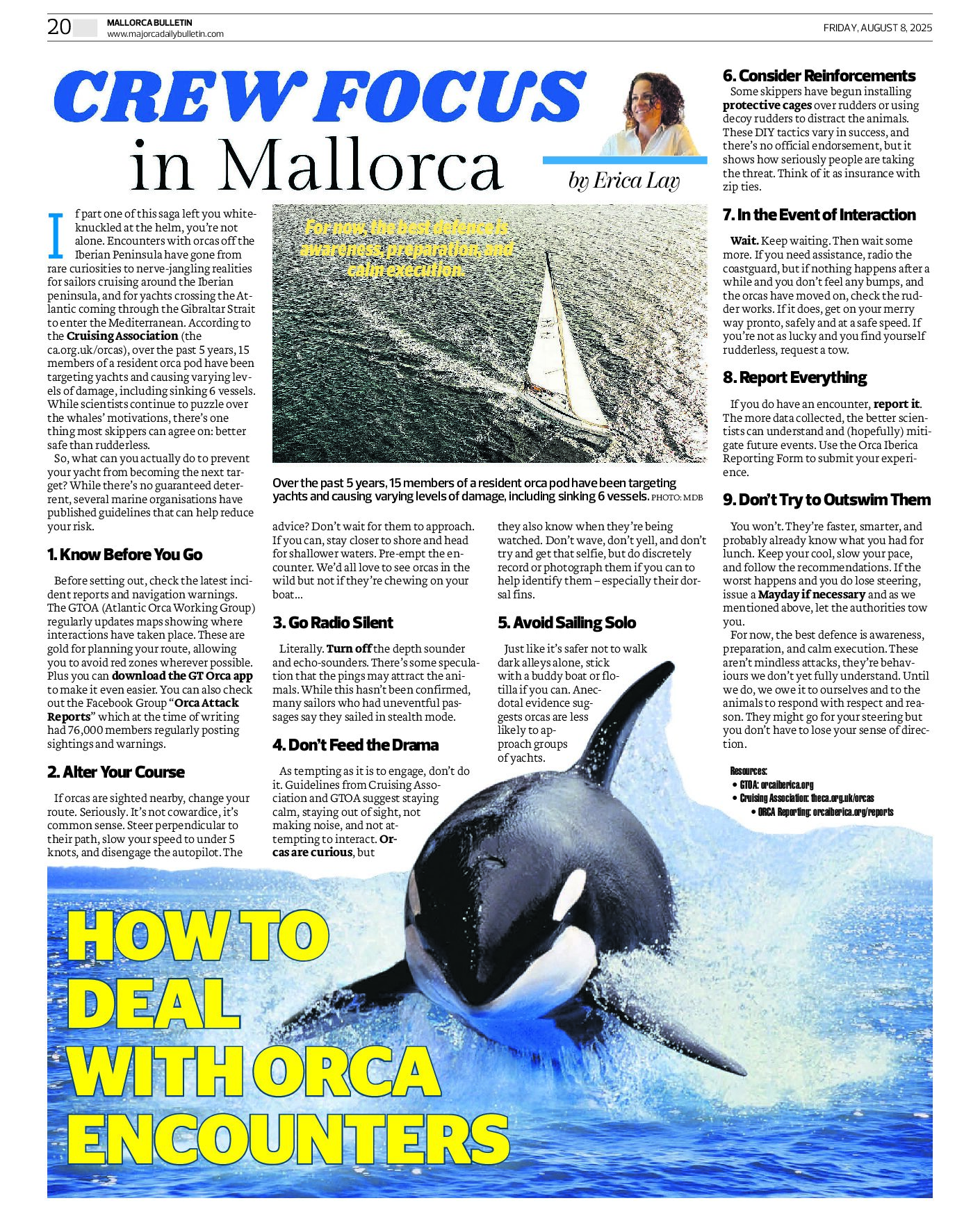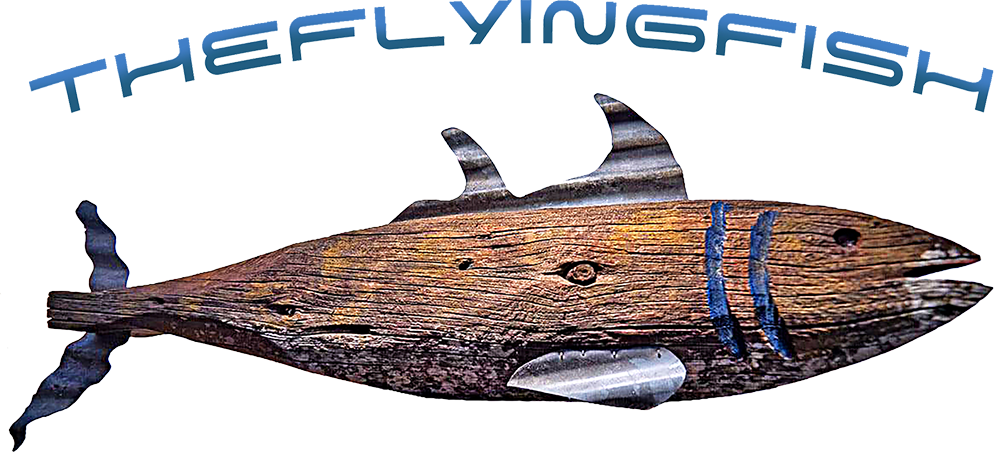Crew Focus: How to Deal with Orca Encounters

With Courtesy of Erica Lay & The Mallorca Bulletin. #25/1067.
Erica Lay owner of EL CREW International Yacht Crew Agency http://www.elcrewco.com/ erica@elcrewco.com
By Erica Lay
Encounters with orcas off the Iberian Peninsula have gone from rare curiosities to nerve-jangling realities for sailors cruising the region — and for yachts crossing the Atlantic through the Gibraltar Strait into the Mediterranean.
According to the Cruising Association, over the past five years, 15 members of a resident orca pod have been targeting yachts and causing varying levels of damage, including sinking six vessels. While scientists continue to puzzle over the whales’ motivations, there’s one thing most skippers agree on: better safe than rudderless.
Here’s what you can do to reduce your risk.
1. Know Before You Go
Check the latest incident reports and navigation warnings. The GTOA (Atlantic Orca Working Group) updates maps showing recent interactions, and the GT Orca app makes route planning easier. The Facebook group Orca Attack Reports (76,000+ members) is another good source of real-time sightings.
2. Alter Your Course
If orcas are spotted nearby, change your route immediately. Steer perpendicular to their path, slow to under 5 knots, and disengage autopilot. Stay closer to shore in shallower waters if possible.
3. Go Radio Silent
Turn off depth sounders and echo-sounders. There’s speculation these pings may attract orcas. While unproven, many sailors who’ve passed without incident sailed in “stealth mode.”
4. Don’t Feed the Drama
Stay calm, stay out of sight, and avoid noise or interaction. Don’t wave, shout, or try for a selfie. If possible, discreetly record dorsal fins for identification.
5. Avoid Sailing Solo
If possible, sail with a buddy boat or flotilla. Orcas appear less likely to approach groups of yachts.
6. Consider Reinforcements
Some skippers fit protective cages over rudders or use decoy rudders. These DIY solutions vary in success, but they show how seriously the risk is taken.
7. In the Event of Interaction
Wait it out. If you don’t feel bumps and the orcas move on, check steering and continue at a safe speed. If steering is lost, call the coastguard and request a tow.
8. Report Everything
If you have an encounter, file an Orca Iberica Reporting Form. More data helps scientists understand and address the behaviour.
9. Don’t Try to Outswim Them
You won’t win. Keep your pace slow and steady, follow the guidelines, and let the authorities handle it if you lose steering.
For now, the best defence is awareness, preparation, and calm execution. Until we fully understand these behaviours, respond with respect and reason — they may target your rudder, but you don’t have to lose your sense of direction.
Resources:
- GTOA: orcaiberica.org
- Cruising Association: theca.org.uk/orcas
- ORCA Reporting: orcaiberica.org/reports
